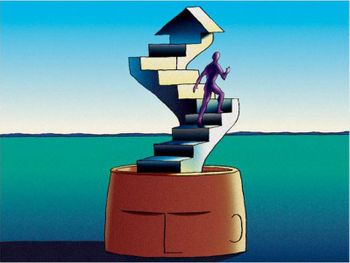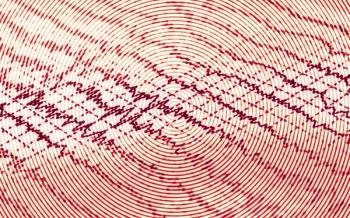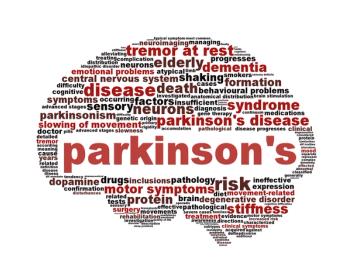
In his blog for Mental Illness Awareness Week, NIMH Director Thomas Insel talks about the complexity of mental disorders and the need for scientists, clinicians, patients, and families to work together in searching for better treatment.

In his blog for Mental Illness Awareness Week, NIMH Director Thomas Insel talks about the complexity of mental disorders and the need for scientists, clinicians, patients, and families to work together in searching for better treatment.

The discovery that a single IV infusion of low-dose (subanesthetic) ketamine exerts rapid antidepressant effects constitutes an expansion in our understanding of the neurobiology of depression and provides new avenues for drug development.

We have medications that can affect serotonin, norepinephrine, and-to a lesser extent-dopamine. Many other neurotransmitters are involved with mood disorders, but we have no medications yet to target them. Neurostimulation offers a non-systemic somatic approach to depression, often with an improved side effect profile. More in this Q&A.

The SSRIs, although principally targeting serotonin transporter, are complex drugs that might work on other neurotransmitter and receptor systems. It is likely worthwhile to look at the effects of other monoamine and neuropeptide systems on the enzymatic machinery cleaving the amyloid precursor protein.

What is your first impression of this image and why?

Some doubt that even $650 million will go very far in speeding up the solution to the vast jigsaw puzzle known as neuroscience. According to this author, we have learned a great deal in basic science, but nothing at all that translates to better clinical care.

When psychosocial treatments are delivered with high quality and fidelity, outcomes improve. That is the parity all of us should be fighting for. More in this commentary by NIMH Director Thomas Insel, MD.

In the trenches of Alzheimer research, the battle continues . . . but where do we stand? Is the war on AD dementia nearing conclusion, or are we simply in the initial throes of the fight? Three experts weigh in.

A discussion of computerized cognitive training programs with the most independent supportive research that demonstrates a previously unrecognized degree of neuroplasticity, or cognitive flexibility, in the brain.

We talk about mental disorders as brain disorders, but what does that really mean? How does it change the way we think about autism, schizophrenia, depression, bipolar, and other illnesses? The answer to these questions are still evolving. More in this video exclusive with NIMH Director Thomas Insel, MD.

The study of moral cognition now carries age-old questions and observations into the era of neuroimaging and cognitive neuroscience by the shift toward a capacity for asking, “What are the structures necessary and sufficient for moral reasoning?”

Research is now making progress in understanding what happens before and during the illness and how this behavior can be explained.

Evidence has accumulated on the efficacy of transcranial direct current stimulation in major depression. The authors review its potential mechanism of action, findings from recent clinical trials, and potential role in the treatment of depressive disorders.

How are individuals with anorexia nervosa able to ignore signals regarding hunger that otherwise motivate eating, even when they are severely emaciated? Expert insights and online coverage by Psychiatric Times during National Eating Disorders Awareness Week.

An overview of Behavioral Neurology and Neuropsychiatry, a medical specialty committed to better understanding links between neuroscience and behavior and to the care of individuals with neurologically based behavioral disturbances.

The term “CTE” was introduced recently to describe progressive neuropathological changes and diffuse neuropsychiatric symptoms associated with a history of TBI. Here, a clinical overview of TBI and CTE.

Psychiatric comorbidity in epilepsy represents not only a matter of intellectual interest but also an important variable that affects prognosis in terms of morbidity and mortality.

For some patients with Parkinson disease, the neuropsychiatric complications are a greater source of morbidity than the motor dysfunction. This article focuses on the management of psychosis in Parkinson disease.

As with most tests in medicine, the results of computerized neurocognitive tests are not diagnostic, but they are useful adjuncts to the diagnostic process.

Many psychotherapies attempt to enhance patients’ problem-solving capacities, interpretation of images, and regulation of affective states. What areas in the brain play a role in these functions?

Since the terms “genius” and “creativity” have different definitions, Psychiatric Times asked a neuropsychologist and creativity expert to clarify how the terms are being used in scientific studies.

Deep Brain Stimulation is a neurosurgical procedure initially developed for the management of treatment-refractory movement disorders. More recently, the rationale for the use of DBS in anorexia nervosa derives from several sources.

Here's the story of a man with long-standing diabetes -- a pillar of the community-- who had been behaving strangely. He taught his physicians to look past the obvious clues and ultimately learn a lesson they never forgot.

Take our quiz to test your diagnostic skills on intellectual disability (intellectual development disorder), a subcategory of neurodevelopmental disorders in DSM-5.

Demographic shifts and rising life expectancies will lead to an epidemic of chronic neuropsychiatric disease, and societal and public health costs will be enormous. Deep brain stimulation--a procedure that interfaces directly with the neural elements that drive pathological behavior--could be useful.